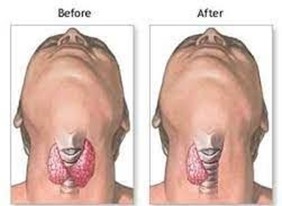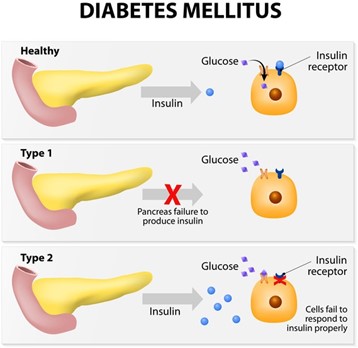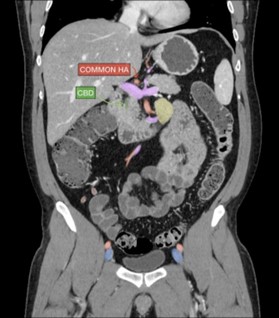A 40-year-old woman had a total thyroidectomy for hyperthyroidism after medical management was not successful. The nurse is preparing to teach the client about her thyroid hormone replacement (levothyroxine).
Which health teaching will the nurse include about this drug?
Select all that apply.
"You will need to get frequent laboratory tests to monitor your thyroid hormone levels."
"You will only need to take the drug for about 3 to 6 months."
"Don't take more of the drug than prescribed to prevent hyperthyroidism symptoms."
"Check with your primary health care provider if you take any other medication or herb.”
Correct Answer : A,C,D
The correct answers are a, c, and d. The client will need to take thyroid hormone replacement (levothyroxine) for the rest of her life since she had a total thyroidectomy. The dosage will need to be carefully monitored to ensure that it is correct, and laboratory tests will need to be done frequently to monitor thyroid hormone levels. Taking too much of the drug can cause hyperthyroidism symptoms, so it is important not to take more than prescribed. It is also important to check with a healthcare provider before taking any other medications or herbs, as they can interact with levothyroxine.
Answer b is incorrect because the client will need to take the drug for the rest of her life.

Nursing Test Bank
Naxlex Comprehensive Predictor Exams
Related Questions
Correct Answer is ["A","D","E"]
Explanation
Option A indicates that the client understands the timing of glyburide administration, which is typically taken with the first bite of a meal to aid in glucose control.
Option d indicates that the client understands the importance of continuing antidiabetic medications even when they are sick. Skipping doses during illness can lead to uncontrolled blood glucose levels.
Option e indicates that the client understands the importance of foot care in preventing complications related to peripheral neuropathy, such as diabetic foot ulcers.
Option b is incorrect because patients with peripheral neuropathy should not walk barefoot, as they may not feel injuries to their feet, which can lead to diabetic foot ulcers and other complications.
Option c is incorrect because antidiabetic medications do not allow patients to eat whatever they desire. Patients with diabetes need to follow a healthy diet and exercise plan to manage their blood glucose levels effectively.

Correct Answer is ["C","D"]
Explanation
Option A is not the best advice because drinking lots of water alone may not be enough to relieve constipation, especially if there is an obstruction.
Option B is also not accurate because not all intestinal obstructions require surgery, and the treatment approach will depend on the cause and severity of the obstruction.
Option C is accurate because a nasogastric tube can help relieve any distention caused by the obstruction by removing any gas or fluids that may have accumulated in the stomach and small intestine.
Option D is also accurate because an abdominal CT is one of the diagnostic tests that can help confirm the presence of intestinal obstruction and provide information about the location and cause of the obstruction.

Whether you are a student looking to ace your exams or a practicing nurse seeking to enhance your expertise , our nursing education contents will empower you with the confidence and competence to make a difference in the lives of patients and become a respected leader in the healthcare field.
Visit Naxlex, invest in your future and unlock endless possibilities with our unparalleled nursing education contents today
Report Wrong Answer on the Current Question
Do you disagree with the answer? If yes, what is your expected answer? Explain.
Kindly be descriptive with the issue you are facing.
